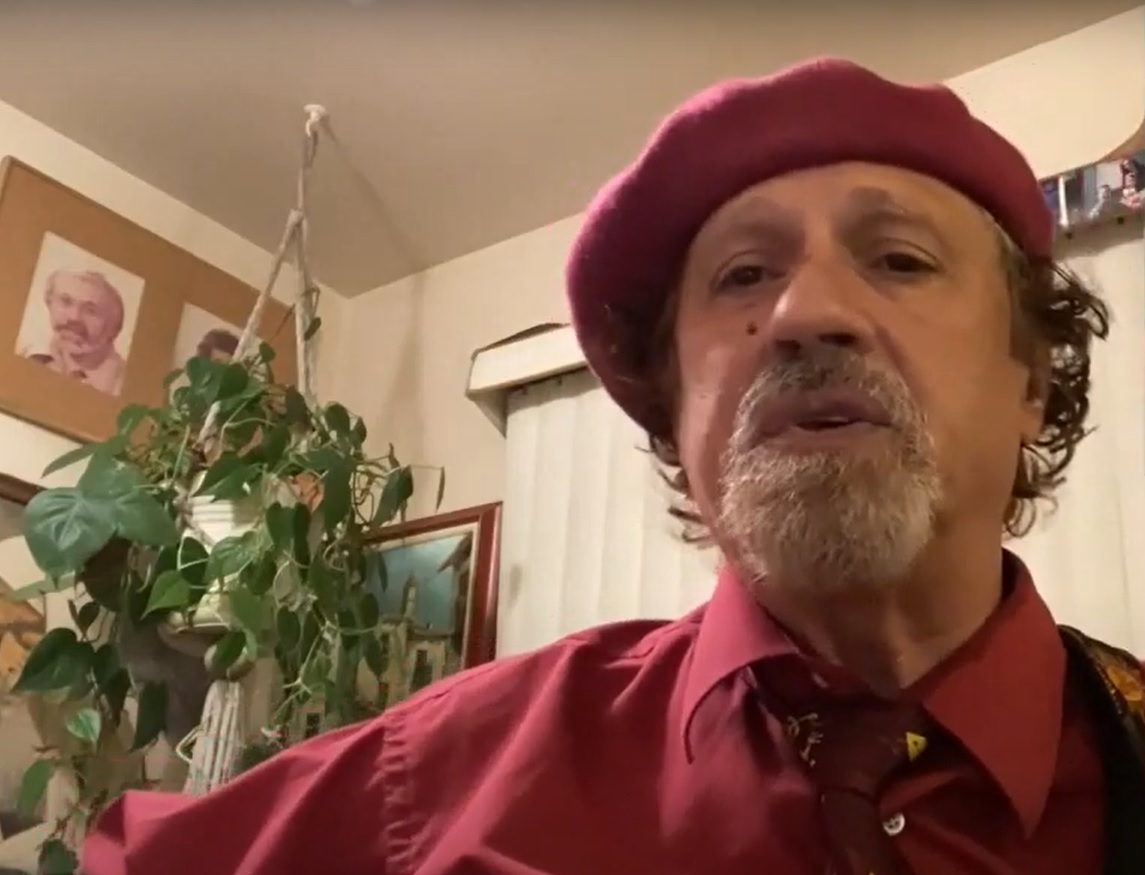From songs to history, rabbis explain Festival of Lights
Friday, Dec. 18, marks the last day of Hanukkah, an eight-day holiday celebrating hope and light’s triumph over darkness. Jewish chaplains across California observed the occasion with special messages to those incarcerated in the state’s institutions.
The 30-minute virtual message aired on in-prison television, offering a bit of light for those of the Jewish faith. Three Jewish chaplains participated in the video: Rabbi Benzion Lew, at Calipatria State Prison; Rabbi Yehuda Ferris, at California Health Care Facility; and Rabbi Moshe Halfon, at California Institution for Women.
Rabbi Ferris, while discussing heavy topics, tried to keep the discussion basic and light.
He explained most Jewish holidays come down to three things: conflict, victory and food.
“They tried to kill us, we won (so) let’s eat,” he quipped.
The Jewish faith is meant to be shared, not hidden.
“Take it to the streets. Hanukkah is unique in that its primary mitzvah is observed in public. It is not enough to be a Jew in heart or even at home. Hanukkah teaches us to shine outwards into our surroundings with the Godly glow of mitzvahs,” Ferris said. “Finally, don’t be ashamed to perform mitzvahs, even if you’ll feel different. Be like a menorah, proudly proclaiming its radiant uniqueness for all to see. Happy Hanukkah.”
Hanukkah’s history and hope

“History itself has a history. Our perspectives shift over time and some moments may only seem meaningful in retrospect. We don’t always understand the real significance of an event until many decades or even centuries later,” Rabbi Lew explained. “A classic example of this is the history of Hanukkah.”
Israel was ruled by Alexander the Great of Macedon, part of the Alexandrian Empire of the Greek.
“Then, during the second century, Israel found itself under the domain of the Seleucids, who were based in Syria. The Seleucids’ leader decided to force the pace of Hellenization on the Jews of the land of Israel. Among other things, he forbade the public practice of Judaism, erected a statue of Zeus in the temple and offered swine before it as a sacrifice, in a desecration of Jewish values and practices,” Lew said.
Then, a Jewish priest and his supporters rebelled.
“Over the next three years, they scored a momentous victory over the Seleucids, reconquering Jerusalem and bringing it back under Jewish sovereignty. They cleansed the temple and rededicated it, lighting the great menorah that stood in the temple for a celebration lasting eight days,” he said. “The real battle against the Greeks was not a military one but a cultural one.”
What is Hanukkah?
“It is the Jewish eight-day wintertime Festival of Lights celebrated with the nightly menorah lighting, special prayers and fried foods,” said Ferris. “The Hebrew word Chanukkah means dedication and is thus named for the rededication of the Holy Temple. It is also spelled Hanukkah with an H or (other) variations of the Hebrew word.”
What does Hanukkah commemorate?
“In the second century BCE, the Holy Land was ruled by the Seleucids, the Syrian Greeks who tried to force the people of Israel to accept Greek culture and beliefs instead of mitzvah observance and belief in God. Against all odds, a small band of faithful but poorly armed Jews … defeated one of the mightiest armies on Earth, drove the Greeks from the land, reclaimed the Holy Temple in Jerusalem and rededicated it to the service of God,” Ferris said.
“When they wanted to light the menorahs, the seven-branched candelabras, they found only one (day worth of olive oil that) had escaped contamination by the Greeks. Miraculously, they lit the menorah and the one-day supply of oil lasted for eight days, until new oil could be prepared under conditions of ritual purity. To commemorate and publicize these miracles, the sages instituted the Festival of Hanukkah.”
Hanukkah in song and food
Rabbi Halfon played guitar and sang celebratory tunes.
“This is an Israeli song I’ve always loved because it doesn’t sing anything about dreidels or fighting or killing. It’s just about a light and darkness,” he said.
The song included the lyrics, “Though the night is dark and cold, there is light within our souls. In our hearts there burns a flame. Unity in freedom’s name. Go away darkest scariest night. Go away, make way for light.”
Regarding food, Ferris explained that since oil was part of the original Hanukkah celebration, it is still used today in the form of fried foods such as the latke, a fried potato pancake.
Why is Hanukkah still celebrated?
“Because though the temple was destroyed, Jewish hope was not destroyed. We may have lost the building, but we still had the story, the memory, and the light. And what had happened once in the (those) days, could happen again,” said Rabbi Lew. “So, as you light the Hanukkah candles, remember this: The Jewish people kept hope alive and hope kept the Jewish people alive. We are the voice of hope in the conversation of humankind.”
By Don Chaddock, Inside CDCR editor
View the full video on YouTube (may not be accessible from a CDCR computer).
